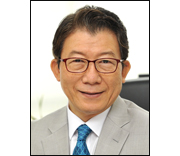-
[October 18. 2016 Korea times] New FDI prefers currency stability
- Date : 2016.10.19
- Views : 436
New FDI prefers currency stability

By Jeffrey I. Kim
One of the critical determinants of foreign direct investment (FDI) is currency stability. A change in the value of the local currency immediately affects a foreign firm’s production costs and business profits. In general, foreign direct investors focus on the longer-term trend of the currency but they dislike the unpredictability of future exchange rates. Recently, new FDI flows have conspicuously lessened internationally. This has a lot to do with the increased variability of the exchange rates.
Foreign investors feel uneasy about the increasing uncertainty in the value of the US dollar. Even though the US dollar is not convertible to gold, it has been considered the anchor currency of the global economy. Every country wants to keep a stable exchange rate with the US dollar.
However, their currency values have been unstable since the global financial crisis occurred in 2008-09. To escape the crisis, the Fed has been expanding the dollar supply on a massive scale under quantitative easing (QE). Also the EU and Japan have joined in inflating their currencies. Since 2013, the US Fed has been tapering off QE to raise its interest rates gradually. But the massive supply of euro and yen will continue for some time to come in the aftermath of Brexit. The prospect of global currency stability is gloomy.
Many people worry about the current situation where major reserve currency countries try to competitively lower their currency value. Some argue that currency wars have started and another financial crisis of mammoth scale is looming. Last week I attended an international conference on currency wars. I chaired the session and three panelists joined. One panelist was from the US, another from Japan, and another from China.
The panelists identified the essential features of the currency wars. The central banks of the US and Japan have expanded their money supplies hoping that money expansion would lower the interest rates and cheapen the currency. The US accuses China of currency manipulation. In turn, China criticizes the US for being the biggest currency manipulator. Japan is criticized because Abenomics is hurting many countries including Korea. The central banks of BRICS and other emerging countries try to cheapen their currencies by directly purchasing US dollars in the currency markets. These days every country manipulates its currency. One country calls it “manipulation,” another “monetary policy.”
Amid the tit-for-tat in the cheapening of their currency, China’s renminbi officially became an SDR currency on October 1. This is considered a herald to the world. The SDR is a composite currency created by the IMF, consisting of a fixed quantity of U.S. dollars, the euro, renminbi, Japanese yen, and British pound. Due to the nature of the basket-currency peg, the variability of the SDR is less than that of the single-currency peg. The SDR is an international reserve asset traded only among the central banks.
As China’s currency becomes an SDR currency, it can partly meet the world’s increasing demand for international liquidity. To that extent, the US does not have to suffer trade deficits. In addition, the variability of the dollar value will be mitigated.
China became a G2 country in such a short period for three reasons—rapid accumulation of foreign currency earnings through continued trade surpluses; a slow opening up of its capital accounts; and keeping its currency stable under the basket currency system. Although the rest of the world kept feeling disappointed, China had been extremely strategic in managing its exchange rate and liberalizing their capital accounts.
Korea adopted the currency basket system during 1980-1990. During this period, exchange rates were stable. Currency and price stability laid a foundation for a high growth of 7-8 percent per year. Korea changed from a net debtor to a net creditor country beginning in 1986. For now, however, it faces low growth of 2-3 % and high unemployment. Rival countries often accuse the central bank of Korea of manipulating the won. If Korea returns to a multiple-currency peg system, the variability of the won will fall and new FDI inflows would increase significantly.
To curb the increasing trend of world-wide currency instability, the leaders of the G20 may seriously consider the adoption of the basket-currency system for emerging economies including Korea in the 2017 Hamburg summit.
http://www.koreatimes.co.kr/www/news/opinon/2016/10/197_216252.html










